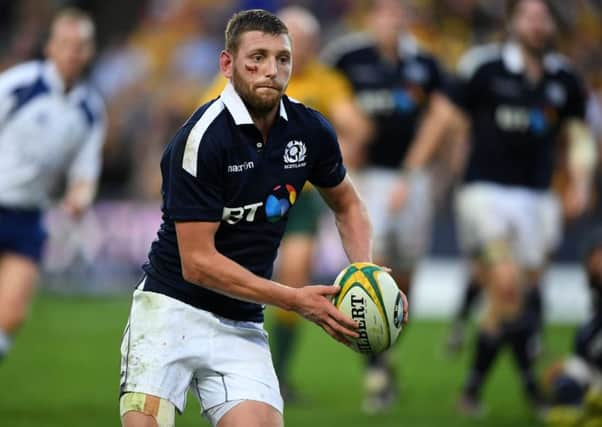Allan Massie: Sydney tries illustrated Scotland's class


Such tries are often described as “opportunist”, fairly enough. But it’s one thing to have an opportunity, another to seize it. Moreover, both Duncan Taylor’s interception and Finn Russell’s charge-down try were made possible by the pressure being exerted on the Australian defence. The Wallabies were harassed into making mistakes.
The third Scottish try was very different: a thing of beauty which will be replayed time and again in the months and years to come.
Advertisement
Hide AdAdvertisement
Hide AdI suppose it wasn’t quite as significant as Jim Calder’s against France in 1984 or Tony Stanger’s against England in 1990, both of which secured us the Grand Slam, but it’s up there with Andy Irvine’s first try against France in 1980, the glorious first try triggered by young Roger Baird’s audacious run out of our own 22 in Cardiff in 1982, the Gavin Hastings’ try against France in 1995 when the “Toony flip” saw the French defence open like the parting of the Red Sea before the Children of Israel, or indeed tries scored in Paris in 1999 when they came so fast and frequently that it was hard to retain a clear memory of any of them. In short, it was pretty good.
So indeed was the defence. Alex Dunbar is the least spectacular member of this now glittering Scottish back division, but it was his turnover of Michael Hopper when the clock was already in the red that saved the day.
He does this time and again. At making the tackle, getting back on his feet to win the ball or force the tackled player to concede a penalty for holding on, Dunbar is now in the Brian O’Driscoll class.
There are really only two adverse criticisms which might be offered of the Scottish performance. First, we botched an attempt to run down the clock with the now generally favoured tactic of keeping possession, usually by a succession of short passes, and pick-and-drives. This is always risky when you are deep in your own half, as we were. We conceded a penalty and gave Australia a chance to snatch a victory. Surely it’s often wiser to kick long, preferably into touch (making sure the ball is far enough into touch to make a quick throw-in impossible). For one thing getting to the line-out eats up time quite effectively.
Second, we conceded 15 penalties to Australia’s eight, far too many. Wayne Barnes is a very good referee, but we should know he is very quick to penalise at the breakdown. You can rarely afford to let the penalty count against us reach double figures. We got away with it in Sydney; another day we won’t.
Australia were beaten twice by Scotland last weekend. The under-20s’ win in Georgia was every bit as meritorious and possibly even more significant. The present upsurge in our rugby fortunes will be maintained only if the generation of young players now emerging develop the habit of winning. So the signs are good.
The winning try was scored by the Currie scrum-half Charlie Shiel.
Talk of breeding is out of fashion except in the case of racehorses and beef cattle, but young Charlie has a rare rugby pedigree. His father Graham was a very fine centre or fly-half from the Melrose stable, and the best passer of a ball in – and for – Scotland in the 1990s, a player it was always a pleasure to watch. Then Charlie’s maternal grandfather is Dougie Morgan, nuggety scrum-half and captain of Scotland, also a 1977 Lion. He played in two Murrayfield defeats – 1973 and ’75 – of Wales in their glory years, and was one of the very few scrum-halves anywhere to have got the better of Gareth Edwards.
If young Charlie can pass as well as his elegant Dad and make a bloody nuisance of himself as his grandfather used regularly to do, he will prove to be quite some player.